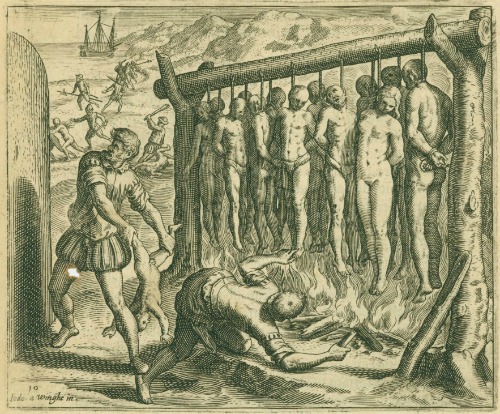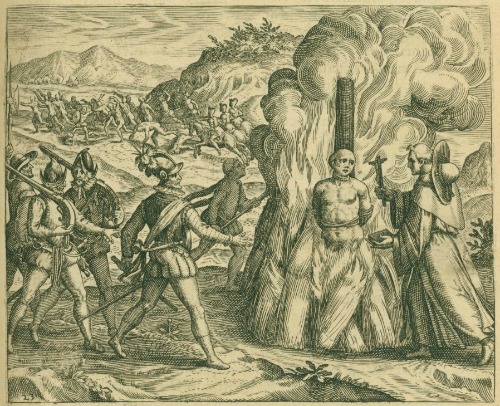In June and July we’ll celebrate the beginning of a new fiscal year by highlighting new acquisitions from the past year. All of these amazing resources will be available for today’s scholars, and for future generations of researchers in the Rubenstein Library! Today’s post features a key early work in the development of the concept of human rights.
Bartolomé de las Casas, a Dominican friar and one of the first Spanish colonists in the Caribbean, is best known today for his exposé of the horrifying treatment of indigenous peoples by Spanish settlers during the first decades of colonization. First published in a 1550s series of tracts in Seville, the tracts represented the first argument for the rights of American Indians to be treated as fellow human beings, the first argument for the abolition of slavery in the New World, and one of the first attempts to appeal to a universal code of human rights.
The tracts, especially the sensational details of torture, abuse, and murder, spread throughout Europe as evidence of the Spanish abuse of power in the New World. The Library’s new acquisition is the first Latin translation and first illustrated edition of Las Casas’ text, entitled Narratio Regionum Indicarum per Hispanos Quosdam Devastarum Verissimi…, published in Frankfurt in 1598. The work features a powerful series of eighteen copper engravings by Theodor de Bry, depicting abuses of the native peoples.

De Bry never visited the New World, and the images can be seen as prime examples of the “Black Legend” of sensationalistic, anti-Spanish (and anti-Catholic) propaganda used to curb the might of the Spanish empire. This edition of the work of Las Casas advocating for basic human rights for the native populations of the Americas was wildly popular and influential, thanks in part to the images, which retain some of their original power to shock and provoke thought about the treatment of the original inhabitants of the New World.

Post contributed by Will Hansen, Assistant Curator of Collections.

